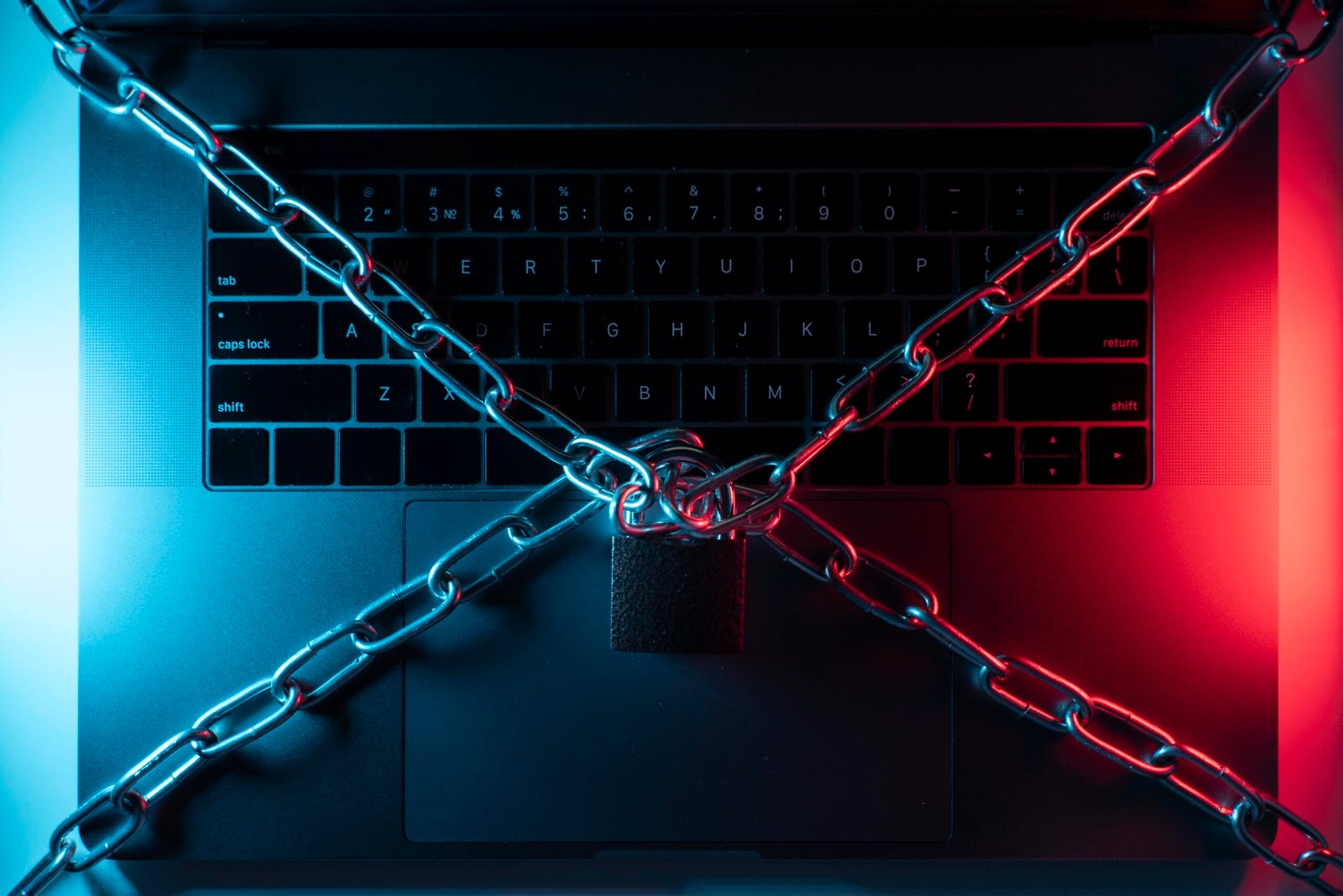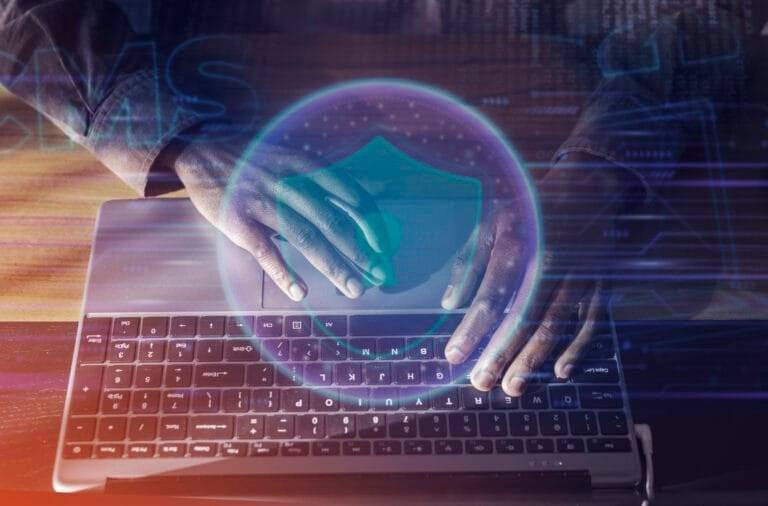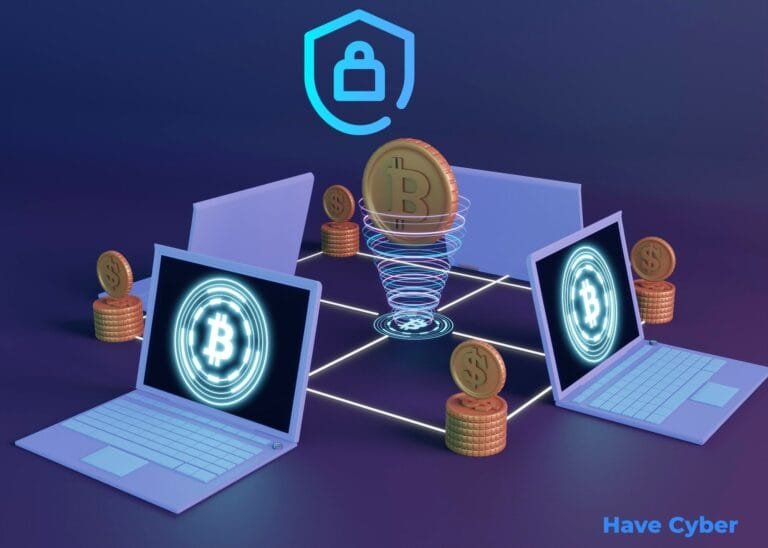The Hidden Threats- Why Cyber Security Background Checks Matter
Nowadays, cybersecurity is a crucial aspect of our online lives. Strong cybersecurity measures are essential in our tech-driven age where cyber threats and data breaches are always present. Their importance cannot be emphasized. But in all of the talk about software security patches, firewalls, and encryption, one important topic is sometimes left out: the human factor.
Hidden Threats in Cyber Security
Within the digital sphere, where innovation drives development, there is a silent hazard that frequently escapes notice: cybersecurity’s hidden dangers. Though most conversations center on protecting networks, systems, and data from outside attacks, the weaknesses in an organization’s hiring procedure are frequently disregarded.
Exploiting Vulnerabilities in the Hiring Process
An essential step in any organization’s development, the hiring process inadvertently exposes it to risks if it is not conducted with extreme prudence. Inadequate background checks or hurried hiring decisions provide bad actors with a window of opportunity to get inside. Consider a situation when an applicant’s digital path, full of red flags, is overlooked because of a cursory review. An unknown entity may enter the organization’s networks as a result of this carelessness, offering serious risks that may not become apparent until it is too late.
Risks Associated with Inadequate Background Checks
Inadequate background checks can have serious and far-reaching consequences. Unchecked vulnerabilities in a single employee’s digital past could unintentionally provide a point of entry for cybercriminals. Beyond just data breaches, this threat also includes the possibility of crucial system penetration, sensitive information leaking, and even the infiltration of malware or ransomware into the infrastructure of the company.
Furthermore, workers who have access to private information or sensitive networks but have not undergone a rigorous background investigation may inadvertently serve as intermediates for online criminals. Because they are easily exploited and could cause the company to suffer major financial losses, reputational harm, and legal entanglements, these missed loopholes offer a danger.
The Imperative of Comprehensive Screening
A paradigm shift in approach is required to address these hidden threats. Businesses need to understand how important thorough background checks are to bolster their cyber security. More than just a formality, a thorough screening procedure is the first line of protection against internal vulnerabilities that can destroy a company’s entire digital infrastructure.
Types of Cyber Security Background Checks
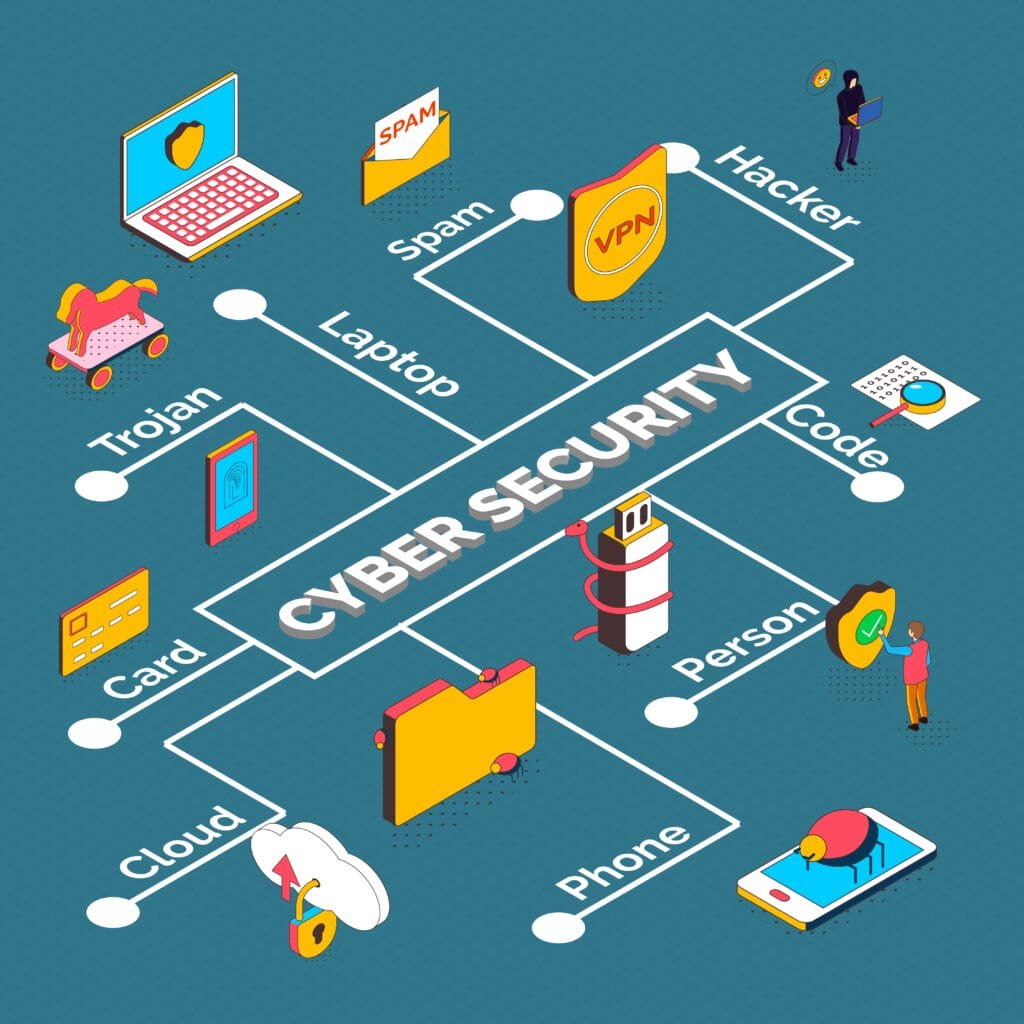
Different kinds of background checks are the cornerstone for protecting organizational environments in the field of cybersecurity, where people are crucial in bolstering defenses.
Pre-Employment Screening: Digging into Digital Histories
The first layer of defense against possible hazards hidden in candidates’ digital traces is pre-employment screening. Analyzing an individual’s web background, confirming credentials, looking into criminal histories, and identifying any red flags that could indicate a security danger to the company are all part of this laborious procedure. It takes into account a person’s digital activities as well as their professional background, looking for any anomalies or potential weaknesses that might compromise the cybersecurity posture of the company.
Continuous Monitoring and Assessments: A Proactive Shield
Pre-employment screens provide a first line of defense, but constant attention is required due to the dynamic nature of cybersecurity. The core of a proactive defensive system is ongoing observation and evaluation. This entails monitoring employees’ digital activity regularly to make sure that any behavioral shifts or emerging risks are quickly detected and dealt with.
Such continuous monitoring includes internal hazards in addition to external dangers. It closely monitors worker behavior, highlighting any deviations from standard operating procedures that could point to system compromises or possible breaches of security.
The Holistic Approach: Integrating Both Checks
A strong cybersecurity background check system is built on the complimentary pillars of pre-employment screening and ongoing monitoring. Pre-employment checks create a baseline of a candidate’s digital history, but ongoing monitoring ensures a proactive strategy by immediately identifying and addressing new hazards.
The Evolving Landscape of Checks
Because cyber risks are continuously changing, cyber security background checks must also be flexible. Conventional techniques are no longer adequate to defend against advanced cyberattacks. Predictive assessments that identify potential dangers before they materialize are made possible by the gradual reshaping of background checks through the incorporation of new technology such as AI-driven analytics and machine learning algorithms.
Consequences of Neglecting Cyber Security Background Checks
Neglecting or underestimating the importance of thorough background checks for cyber security can lead to disastrous outcomes that affect an organization’s finances, reputation, and legal status, among other aspects of its operations.
Data Breaches and Their Impact
The increased danger of data breaches is one of the most obvious consequences of insufficient background checks. Consider an employee who has reported vulnerabilities getting access to private data or inadvertently acting as an intermediary for hackers. Private information about customers, commercial secrets, or private data may all be revealed in a single breach. Such breaches have severe repercussions, including damaged stakeholder trust, monetary losses, and possible legal liability for failing to protect sensitive data.
Legal and Financial Repercussions
A company may be held accountable if its background checks are not done thoroughly. Legal consequences may be severe in situations where an employee’s negligence results in a data breach. Financial losses can be significant as a result of fines, penalties, and legal action resulting from compromised data. Furthermore, the harm to the company’s reputation may be permanent, affecting its status in the market, future collaborations, and client connections.
Reputational Damage
A security breach has more consequences than just financial harm and legal problems. It damages a company’s brand and erodes stakeholders’, partners’, and customers’ trust. It will take a lot of time and resources to rebuild this trust, which will affect the organization’s growth trajectory.
Unraveling the Domino Effect
Neglecting cyber security background checks has a chain reaction, meaning that one mistake might set off a series of negative occurrences. Even the strongest companies can become unstable due to the consequences of a breach resulting from insufficient background checks, which can cause damaged data integrity, a decline in trust, and severe financial fines.
The Cost of Prevention versus the Cost of Neglect
The initial investment required for conducting thorough cyber security background checks is small compared to the potential costs of neglect. The proverb “prevention is better than cure” is extremely applicable to cybersecurity. Investing in strong checks acts as a preventive measure, preventing dire outcomes and upholding the integrity of an organization.
Best Practices for Effective Cyber Security Background Checks
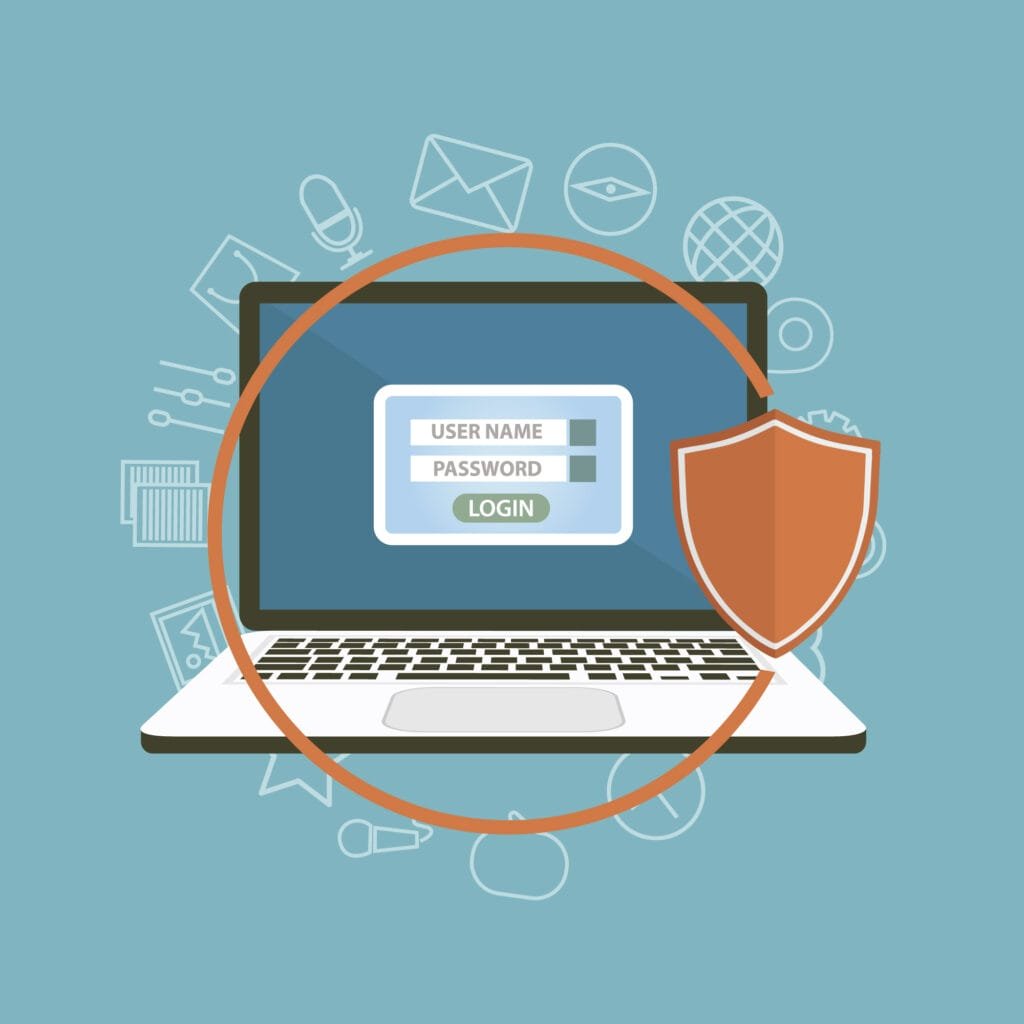
Setting up strong and efficient background check procedures is essential in the complex field of cybersecurity, where people are the key to enhancing defenses. The following are recommended practices to strengthen the cyber security posture of an organization:
Thorough Screening Procedures
Ensuring that candidates are thoroughly checked before hiring them is the foundation of a strong cyber security system. This involves carrying out in-depth investigations into an applicant’s digital footprint, confirming credentials, examining prior job histories, and identifying any warning signs that could indicate security risks. Adopting comprehensive background checks as a mandatory measure ensures a proactive approach toward possible risks.
Regular Training and Awareness Programs
Education and awareness are paramount in fortifying an organization’s defenses. Conducting regular training sessions that highlight cybersecurity best practices, potential dangers, and procedures for safe digital conduct empowers staff to become watchful guardians against cyber threats. The first line of defense against unintentional breaches brought on by oversight or human error is knowledgeable staff.
Continuous Monitoring and Updates
Due to the dynamic and ever-changing nature of cyber threats, prevention is key. Real-time threat detection and remediation can be achieved by putting security protocol upgrades and continuous monitoring into practice. This includes doing routine audits, maintaining systems up to current with the most recent security patches, and adjusting background check protocols to account for changing threat environments.
Multi-Layered Security Measures
A multi-tiered security strategy improves an organization’s defenses. Combining many security measures like intrusion detection systems, access controls, two-factor authentication, and strong encryption is necessary to achieve this. By combining these layers, a more robust and comprehensive defense system is guaranteed.
Collaborative Efforts and Compliance
It is essential to continue adhering to industry norms and laws. One way to keep a company ahead of potential risks and in line with recognized best practices is to cooperate with industry experts, participate in cybersecurity forums, and follow regulations.
Embracing Innovation
Cybersecurity procedures that freeze invite weaknesses. Embracing innovation can give proactive insights into possible hazards, enabling firms to anticipate and mitigate dangers before they occur. Examples of this include exploiting advances in AI, machine learning, and predictive analytics.
Role of Cyber Security Background Checks in Various Industries
Cybersecurity background checks are not just necessary, but crucial across a wide range of businesses in today’s linked digital economy. Thorough background checks are essential for bolstering cyber defenses in a variety of industries, including technology-driven fields and sensitive industries like finance and healthcare.
IT and Technology Sectors
Because they are surrounded by digital innovation, the IT and technology sectors prioritize cybersecurity. Due to the large volumes of data they manage and the widespread use of advanced technologies, these sectors are highly vulnerable to cyberattacks. Thorough background checks for cyber security act as an obstacle, preventing any compromises of vital infrastructure, intellectual property, and sensitive data.
Financial Institutions
Cybercriminals target financial institutions because they are entrusted with sensitive client data and financial activities. Strict background checks must be implemented to reduce the risks connected with insider threats. Employees who are given access to financial information must be carefully checked to prevent security breaches that could result in lost money and damaged confidence.
Healthcare Sector
The healthcare industry is increasingly vulnerable to cyberattacks because it has a wealth of private patient data. Thick background checks are essential for verifying staff members who have access to private medical information. This helps to guarantee that patient privacy is maintained at all times and shielded from any invasions that can jeopardize patients’ health and confidence in medical professionals.
Cross-Industry Application
Although the sensitive nature of the data in these industries makes them stand out, background checks for cyber security are crucial in all industries. Cyber dangers affect every business, including manufacturing and retail. Regardless of the industry, putting in place thorough background checks is crucial to promoting a culture of cyber resilience because a breach in any field can have far-reaching effects.
The Unifying Factor: Protecting Data Integrity
These industries are all connected by the critical need for protecting data integrity. Background checks for cyber security are a unifying aspect since they avoid internal weaknesses that could result in breaches, monetary losses, legal complications, and a decline in trust.
Challenges in Conducting Comprehensive Background Checks
Strong cyber security background checks are crucial, but several issues make it difficult to apply them effectively, which makes it difficult to maintain comprehensive security measures.
Evolving Threat Landscape
The ever-changing landscape of cyber threats presents an ongoing problem. Because cybercriminals are constantly coming up with new ideas and modifying their strategies, standard security solutions are insufficient. Adapting background check methods and technologies to keep up with these quickly changing risks is a major problem for businesses.
Privacy Concerns vs. Security Needs
It requires skill to walk a tightrope between the need for strict security measures and the right of individuals to privacy. Although companies need to access employee data to do comprehensive background checks, worries about data misuse and privacy violations frequently surface. Finding a balance between protecting private data and carrying out thorough inspections is still a difficult task.
Resource Intensity and Cost
Performing thorough background checks requires a significant investment of time and money. The implementation of strong security systems and ongoing threat monitoring can be costly, which presents a challenge for smaller firms with tighter budgets.
Complexity of Compliance
Another level of complication is navigating the complex web of regulatory compliance. Organizations find it challenging to ensure compliance with these requirements while maintaining strict background checks since different businesses have different compliance standards and laws.
Employee Turnover and Accessibility of Data
Updating background checks is an issue when there is a lot of employment turnover. It becomes difficult to ensure ongoing monitoring and evaluation of an employee’s digital footprint when they join or depart an organization. The procedure is made more complex by the need to access and validate data across multiple platforms and jurisdictions.
The Need for Specialized Expertise
Comprehensive background investigations require specific cybersecurity knowledge. For many firms, it can be difficult to find and keep competent personnel who can navigate the ever-changing world of cyber threats and constantly adjust security procedures.
Future Trends and Innovations in Cyber Security Background Checks
Because of both technology breakthroughs and the increasing sophistication of cyberattacks, the cybersecurity landscape is always changing. Staying ahead in the ongoing fight against cyber dangers requires anticipating future trends and improvements in cyber security background checks.
Advancements in AI and Machine Learning
The combination of Artificial Intelligence (AI) and Machine Learning (ML) holds the potential to transform background checks for cyber security. Large-scale data analysis, pattern recognition, and danger prediction are all made possible by AI-powered algorithms with previously unheard-of accuracy. The effectiveness of background checks in identifying and reducing risks can be continuously improved using machine learning models, which are flexible and dynamic.
Predictive Analytics for Risk Mitigation
The way that businesses approach cyber security is changing due to the shift towards predictive analytics. By using historical data and current insights, predictive models can anticipate possible dangers and take proactive steps to reduce risks before they materialize. By offering a proactive security mechanism, these analytics help businesses keep ahead of new cyber threats.
Behavioral Analytics and Biometrics
Biometric data and behavioral analytics are becoming more and more important topics. Background checks are further secured by analyzing user behavior patterns, keystroke dynamics, and biometric identifiers. This customized method reduces the possibility of insider threats and illegal access by more correctly authenticating identities.
Blockchain Technology in Verification
Blockchain technology, which is known for being secure and unchangeable, is being investigated for use in background check identification verification. Its decentralized ledger architecture ensures records that cannot be changed, improving the verification process by offering reliable and transparent data while preventing data manipulation.
Automated Continuous Monitoring
Continuous monitoring is increasingly dependent on automation. Real-time digital activity monitoring by automated systems allows for the quick detection of anomalies or departures from regular trends. The window of vulnerability is shortened by the capacity to respond quickly to possible attacks thanks to this real-time monitoring.
Embracing Zero Trust Frameworks
Growing in popularity is the Zero Trust security model, which functions based on zero trust for both external and internal threats. Constant entity verification is necessary to minimize the risk of breaches caused by compromised credentials or unauthorized access to systems or data.
Conclusion
In conclusion, it is impossible to overstate the importance of a cyber security background check. They serve as the foundation of a strong digital protection plan. Ignoring this crucial element exposes businesses to serious risks, thus prioritizing strict controls and embracing emerging technology is essential for a secure digital future.
FAQs
Why are cyber security background checks essential?
These checks help identify potential risks posed by employees, reducing the chances of internal security breaches.
What happens if an organization neglects these checks?
Neglecting background checks can lead to data breaches, financial losses, legal implications, and reputational damage.
Are there specific industries that heavily rely on cybersecurity background checks?
Yes, industries like technology, finance, and healthcare prioritize these checks due to the sensitive nature of their data.
How can companies improve their background check processes?
By implementing thorough screening protocols and regular training programs to stay ahead of potential threats.
What role do advancements in technology play in the future of background checks?
Innovations in AI, machine learning, and predictive analytics promise more efficient and effective ways to mitigate risks.

